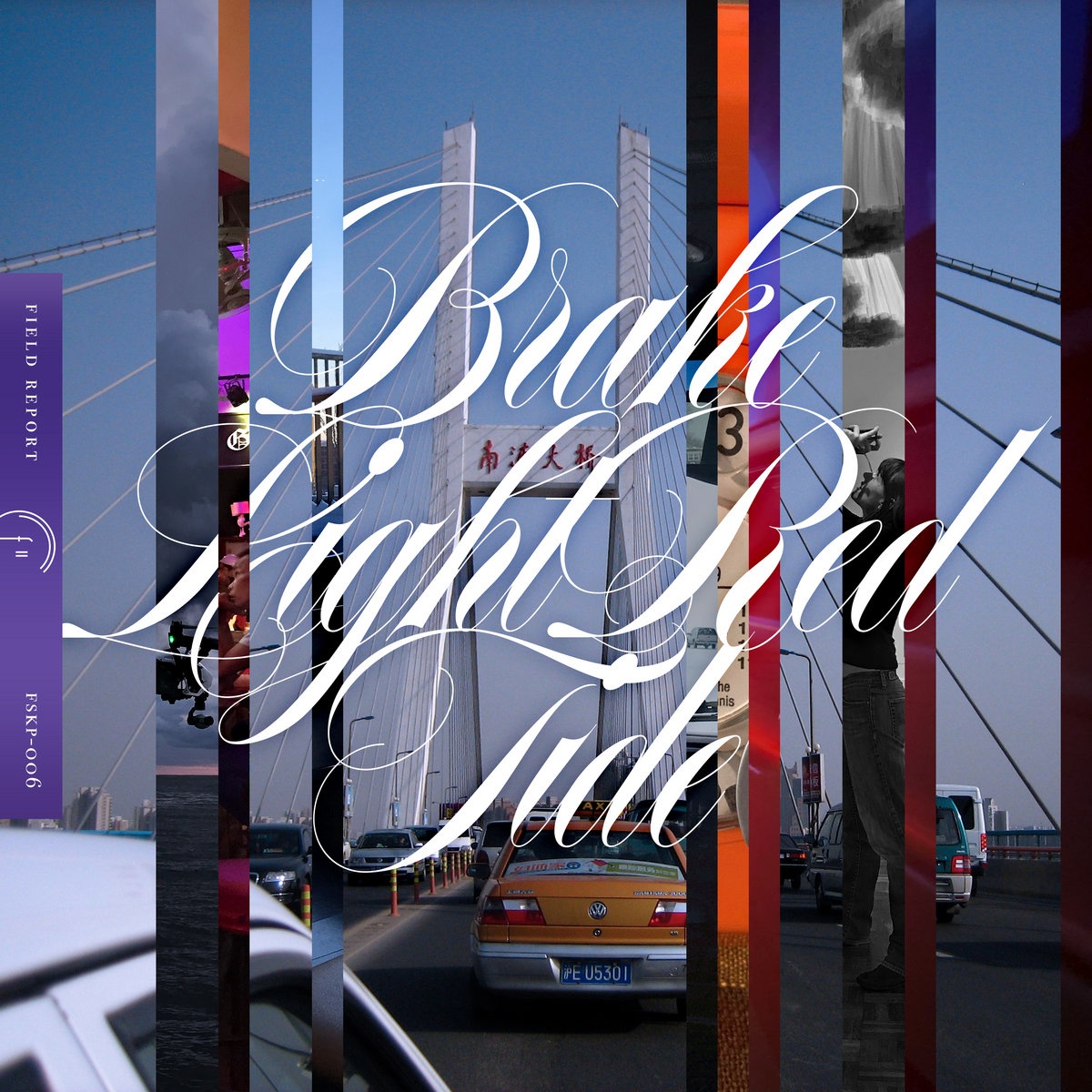 Christopher Porterfield on the road. milwaukeerecord.com
Christopher Porterfield on the road. milwaukeerecord.com
Perhaps his parents detected the glint of a wanderer in their infant’s eyes, then they named him. Christopher Porterfield is like a flawed version of Saint Christopher, the patron saint of travelers, especially in his marvelous song “Home (Leave the Lights On).” Or in “Summons” or “Enchantment,” or the Kerouac-esque “If I Knew.” In his humble way, Porterfield conveys an acute sense of place, even as locales shift. So he honors “the sacred,” as he did in his recent live YouTube performance, from Café Carpe, the quietly legendary roots music venue in Fort Atkinson, Wisconsin, which prompted this essay. He paraphrased the great poet-naturalist Wendell Barry: “There are no places that are not sacred, only some that are desecrated.” This recalls the adage “The Holy Land is everywhere,” spoken by Native American wise man Black Elk, as the white man began his desecrating.
And much of Porterfield’s traveling runs parallel to wayward inner psycho-scapes, like the one depicted on the cover of the second Field Report album, Marigolden. There, two people stand separated by crevasses, lonely, yet heart-wrenchingly close, a stone’s throw away. Beside one person is a car — with head lights projecting towards the other person but too far overhead to illuminate the other person — an almost plaintive failure of technology.

Cover to Field Report’s “Marigolden” album. Courtesy amazon.com
You get the feeling of risk in his wanderer’s sensibility. He conveys a distinctly American dilemma of isolation or alienation, from a desolate yet hungry heart. Yet the persona also belies the mythical Western loner/cowboy narrative.
Porterfield’s slightly nerdy-hip horn-rim specs help make that abundantly clear. The UW-Eau Claire journalism major crafted his band’s name as a clever anagram of his last name, and the name Field Report posits himself as striving to be an honest yet poetic correspondent on what he finds “out there,” in still-untamed or sacred or desecrated, America, and in the craggy depths of his own heart and life.
Bob Dylan still does something comparable but less confessionally, as he did brilliantly probing modern American history in his epic Kennedy assassination song “Murder Most Foul,” last year. Porterfield’s missives, rich in autobiographical experience, seem closer to The New Journalism as Song, with the reporter playing a central role.
To back up a bit, I recently made the critical assertion that James McMurtry is probably America’s finest living singer-songwriter “south of Bob Dylan.” Of course, there are a goodly handful of others who would be that in that “best” conversation, including Steve Earle, whom I also reviewed in that blog. 1
But recently, Porterfield reminded me of his powers in his superb, often exquisite virtual concert. The front man and singer-songwriter for Field Report is a Milwaukeean (by way of Minnesota), part of the rich motherlode of creative songwriting born of the Upper Midwest, including (among many others) Dylan, John Prine, Greg Brown, Prince, Jeffrey Foucault, Peter Mulvey, Hayward Williams, Bill Camplin, Josh Harty, Heidi Spencer, and Justin Vernon (of Bon Iver), with whom Porterfield previously played with in the band DeYarmond Edison.
I first met Porterfield some years ago, when we were both employed by Marquette University. He was leading his previous band, Conrad Plymouth, at Linneman’s Riverwest Inn, a Milwaukee music venue that has long nurtured and celebrated singer-songwriters. “Fergus Falls,” destined as the opener for the first Field Report album, was already a highlight in his repertoire.
I’ve seen him open solo for Richard Thompson at The Pabst Theater in Milwaukee, which immediately put him on substantial ground with that great artist. By then, Field Report was touring and making its mark. The band has since opened for Counting Crows, Emmylou Harris, Aimee Mann, and others. They signed to Verve/Forecast in time for their third album Summertime Songs. That label’s catalogue includes Ritchie Havens, Tim Hardin and Laura Nyro.
So, yes, I’ll put him in the bigger-name conversation of great songwriters. Porterfield isn’t as outward-looking or social commenting as a McMurtry or an Earle. But on the premise that “all politics is personal,” you might accordingly contextualize this far more introspective artist. He lacks some of the musical range and variety of those artists (He’s not really a rocker, as those two often are, even if Field Report’s last two albums delve into pop-rock textures and elevated production.
Porterfield is essentially a lyrical brooder who can raise his emotional temperature as high as a rocker’s, as a lonesome howling wolf, though not in a bluegrass sense. So, even if McMurtry often expresses regret and doleful sentiment in a funky rock groove, it’s often couched in ironic attitude — he can walk that fine line superbly. But until Porterfield proves otherwise, hearing him in a hard-rocking backdrop seems problematic.

Christopher Porterfield, lead singer-songwriter of Field Report. Courtesy npr.org
Though Earle certainly has strong and tender singing moments, Porterfield is actually a more gifted vocalist than either he or McMurtry. His songwriting catalog can’t compare to those prolific veterans, but his voice is how Porterfield often catches you, as sharply and powerfully as an ace fly fisherman. For now, instead of comparing him too closely to others, I’ll mainly strive to take him on his own terms — looking at the world from inside-out, and poetically, while often mining the quotidian, and being easy to connect with. His extraordinary singing emanates with stunningly affecting power, and unassuming poignancy. His points of emphasis often teeter along a gravelly vibrato that virtually bleeds vulnerability, and other times as startling upper-register bursts of emotion. These two stylistic aspects combine in the listener’s memory like a vivid, very human sonic silhouette.
Porterfield is a bruised, contemporary romantic, who directly admits he’s struggled with alcohol, who often sounds like a man dredging limpid thoughts from the depths of his innards, often with a starkness that feels naked, yet perfectly expressed, in the tender grain and surge of that voice. The emotion’s exposed moment often compels the outcries, but tempered by a man’s eloquent sense of self, uncertain as he may be of his situation.
Among his most affecting works is the aforementioned “Home (Leave the Lights On),” from Marigolden, which captures the longing of being “homeward-bound” as well has the famous Paul Simon song named for that phrase.
Among Porterfield’s most vivid, apparently recollected landscapes is “Fergus Falls,” the song resurrected from a 2010 Conrad Plymouth EP, for the self-titled debut Field Report album. Fergus Falls is a small town in Otter Tail County in Western Minnesota, his native state. Of the song’s inspiration, Porterfield told me: “My family used to have a cabin in northern Minnesota. We would drive through Fergus to get there. It sprung from my subconscious when that song appeared, mostly for the alliteration.”
The first Field Report album opens thusly: “This is the one in which I miraculously pulled out of a freefall dive over Fergus Falls, Minnesota.” It is the first of many struggles for equilibrium and grace in his lyric storytelling, and brings to mind another gifted Minnesota writer, F. Scott Fitzgerald, also a drinker, who died at 44, and who, as Elizabeth Hardwick wrote, “had in the midst of chaos the rather cross-eyed power of gazing upon his deterioration as if he were not living it but somehow observing his soul and body as one would watch a drop of water slowly drying up in the sun.” 2
Porterfield emerged from his early vertigo less fatefully, but comparably, with both a sharp-eyed self-insight and a sense of inhabited landscape. Recollected landscapes, real and metaphorical, are a key to his sensibility. As The All-Music Guide has noted, “Some albums are about mood more than anything else, and on Marigolden Porterfield shows he’s a master of creating an ambience that’s cinematic in its strength and emotional impact.” In fact, I can easily envision a Porterfield song adorning one of the new breed of Western movies being made by women directors (eg. Chloe Zhao’s Oscar-winning Nomadland), which court America’s sprawling, rugged spaces but understand the vulnerable smallness of the wandering or wayward soul, alienated from community. 3 “Enchantment” from Marigolden opens on “Easter morning in New Mexico: the Son is risen on another day.” The spiritual wordplay replaces macho Old West gun play.
Porterfield’s is a gift he shares with the Texan McMurtry, as well as not many others. It has to do with how he imbues such perfectly wrought details with psychological resonance, so they breathe ultimately as song lyrics even though they’re impressive even on paper.
Like the aforementioned songs, “If I Knew,” the best-known title from the third album Summertime Songs, is also a road song, but more like a DUI-fueled misadventure that probably left old Saint Chris forgotten, way back in the dust: “You were bouncing off the guardrails shouting at the wind/ we were off our meds, drinking again.”

Album cover for Field Report’s “Brake Lights Red Tide.” Courtesy bandcamp.com
On the latest Field Report album, 2020’s Brake Lights Red Tide, Porterfield is still on the road and still searching for equilibrium but with an enhanced sonic vision, that seems to suspend him from deterioration or harm, and allows listeners to share such uneasy atmospheric heights.
The album cover photo (above) is shot from the window of a car stuck in traffic on an expansive modern bridge over a large body of water in China. And musically the group employs synthesizer, played by Thomas Wincek, much more than previously.
For me, this approach first seemed like a calculated detour, and throughout Porterfield’s singing is more restrained than previously. But the effect ultimately beguiles in its open waywardness. The sonics elevate the thrust of the album on a woozy arc, until finally the penultimate track, “Whulge,” which is essentially a synthesizer instrumental, rippling in sonic waves, buoyant yet immersive. “Red tide” refers to a dense kind of sea algae. So, between the atmospheric synth and that metaphoric “tide,” Porterfield still faces mysteries he dares to dive into, especially with such watery themes as “a river’s love” and “Puget Sound.” Finally, the closing track, “Begin to Begin,” suggests a certain sense of being, a psychological condition he describes which seems like falling back into a pre-natal state, a refrain in sighing descent: “Begin to begin to begin to begin…” Only a session with his therapist, he sings, can pull him out.
But the whole notion of receding from a troubled lifetime back into pre-birth, the swallowing or drowning of full experience, is a profound abandonment, a healing re-immersion into imagined innocence. Perhaps it is the impulse toward literary critic Ihab Hassan’s famous concept of American “radical innocence”: “The disparity between the innocence of the hero and the destructive character of his experience defines his concrete, or existential, situation.” 4
Somehow, after life’s vagaries, cruelties and suffering, perhaps it’s a longing we all subconsciously share, to reset our course to unrealized happiness and beauty, a place we may never reach, perhaps, until death’s passage.
Earlier on Red Tide rebirthing hovers, as this sad road saint sings, “My heart begs to be light but my mind gets dark. Can’t push us into love.”
Also, can’t push us into life, and its inevitable losses? Thus are the risks taken, by an artist as honest as he dares to be.
_________
- Or should I say, “younger than Willie Nelson”? The great critic Mikal Gilmore reminds us that, at 87, the godfather of “outlaw” Texas singer-songwriters, remains vital and in the game. https://legacyrecordings.medium.com/willie-nelson-first-rose-of-spring-1ae9f6eed41f Nelson’s long legacy (His 2018 album was aptly titled Last Man Standing), reinforces the research and statistics that show that marijuana is a far safer drug of pain or psychological management, or even indulgence, than booze (Among gifted singer-songwriters, see: Hank Williams, dead at 29; Steve Earle’s son, Justin Townes Earle, dead last December at 38; and his namesake Townes Van Zandt, dead at 50; Tim Hardin dead at 39; Phil Ochs dead at 35, Gram Parsons and Jim Morrison, both dead at 27, primarily with alcohol abuse or hard drugs central to their demise. Nirvana frontman Kurt Cobain’s gun-shot suicide, at 27, was preceded by substantial drug abuse. The brilliant Brit singer-songwriter Nick Drake overdosed, at 26, on a prescription anti-depressant drug, amitriptyline.)
- Elizabeth Hardwick, American Fictions, Modern Library, 139
- See Jordan Kisner’s essay, “The Western Rides Again,” The Atlantic, May 2021, 86 https://www.theatlantic.com/magazine/archive/2021/05/zhao-nomadland-women-western/618403/
- Ihab Hassan, Radical Innocence: The Contemporary American Novel, Princeton University Press 1961, 7

